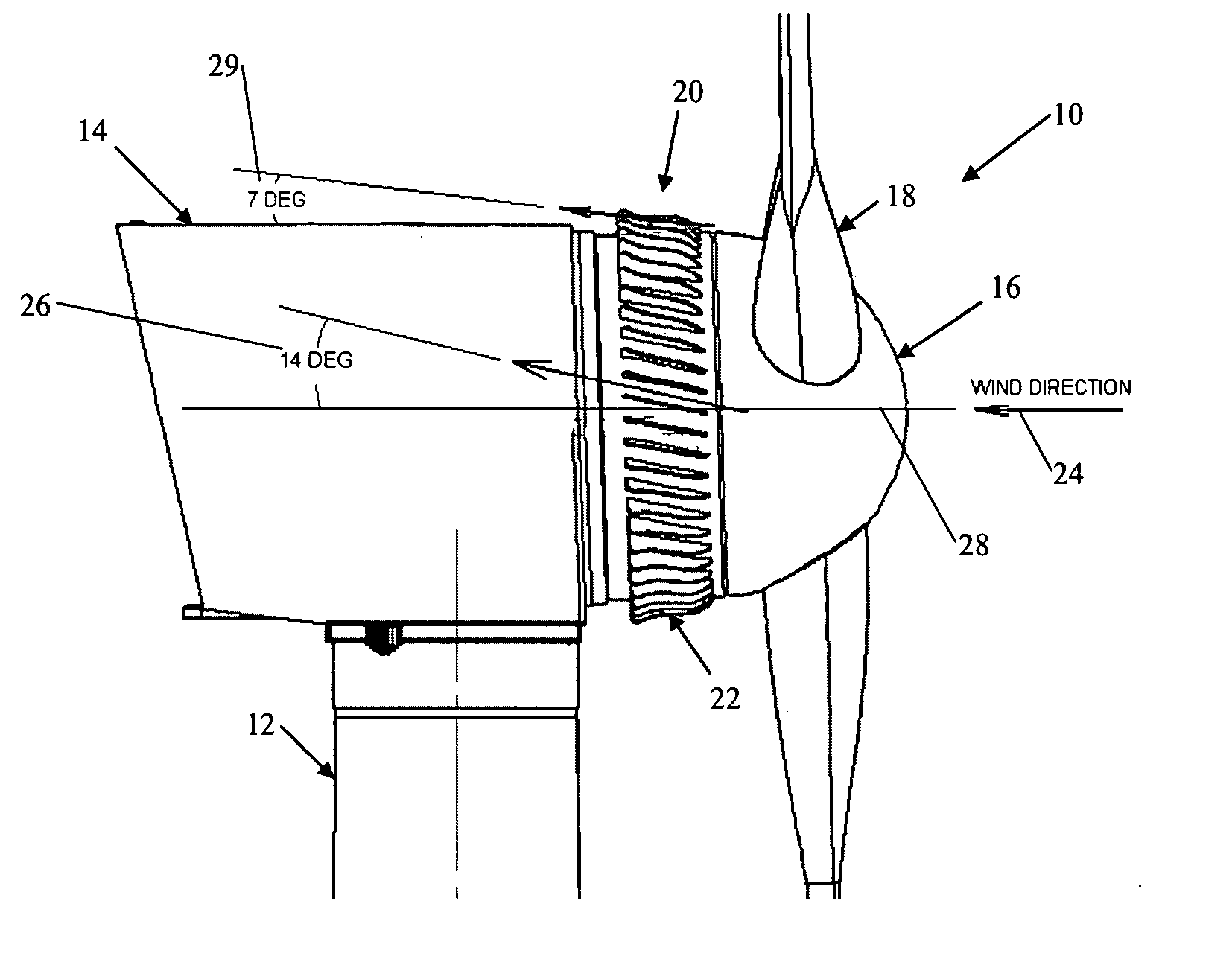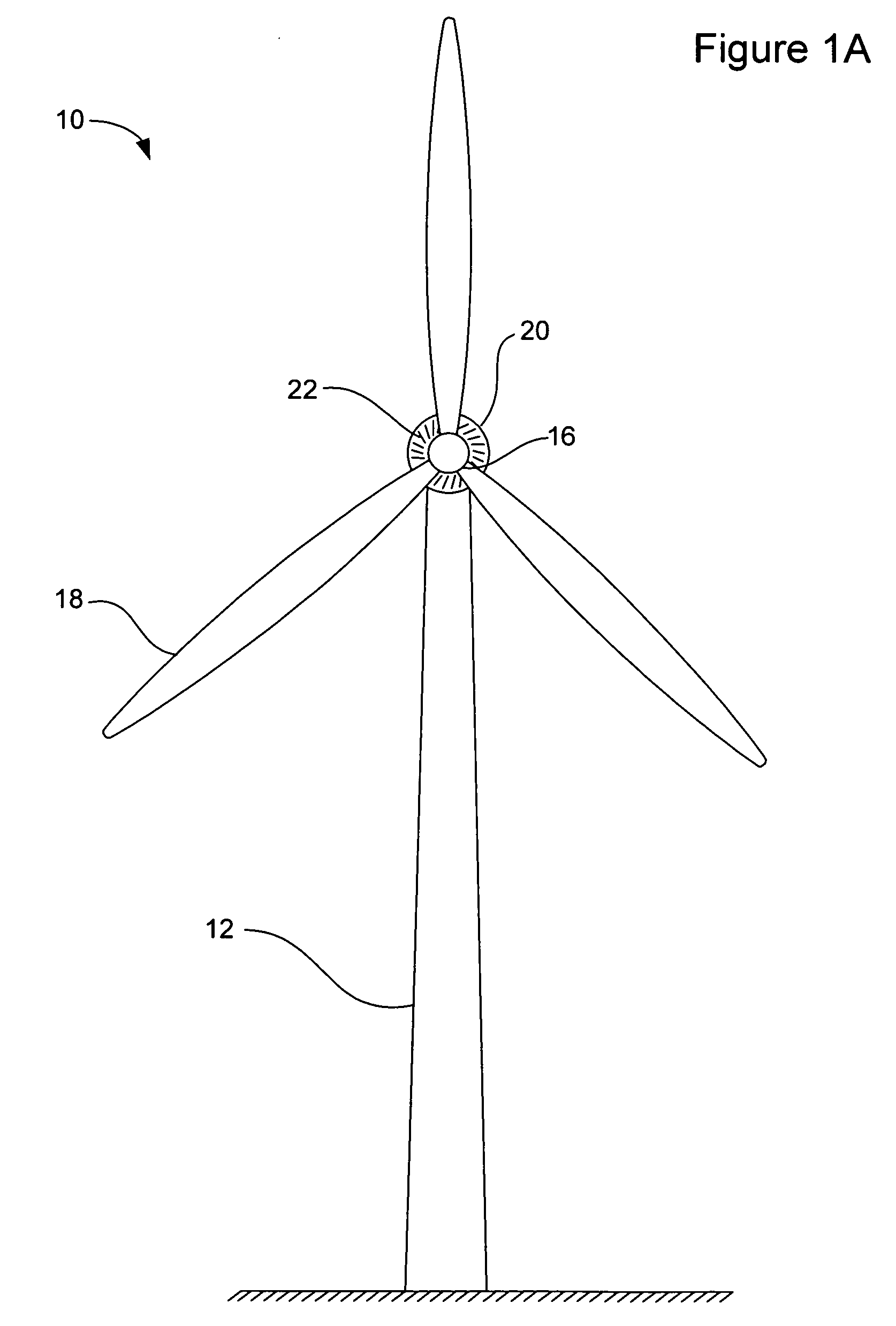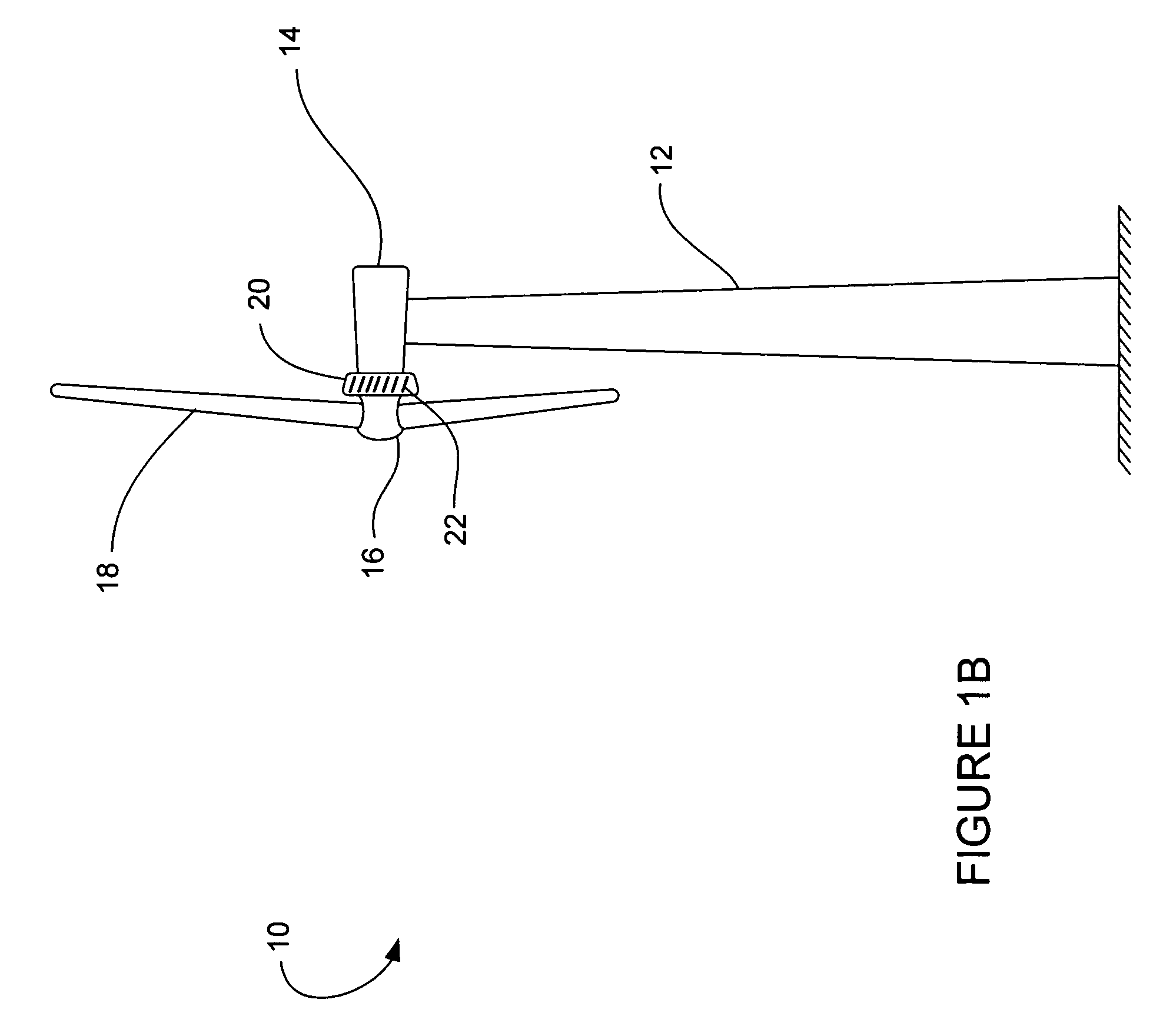Passively cooled direct drive wind turbine
a direct drive, passive cooling technology, applied in the direction of machines/engines, mechanical equipment, electric generator control, etc., can solve the problems of reducing efficiency or acoustic issues, difficulty in manufacturing the wind turbine and conducting maintenance operations, etc., to increase the speed of airflow and enhance the heat transfer in the fins.
- Summary
- Abstract
- Description
- Claims
- Application Information
AI Technical Summary
Benefits of technology
Problems solved by technology
Method used
Image
Examples
Embodiment Construction
[0019] Electrical power may be generated by many different methods. The most common methods involve the boiling of water using fossil or nuclear based fuels. The steam produced by the boiling is used to rotate a turbine that drives an electrical generator to create the electrical power. While these common methods are very efficient, they also have undesirable side effects, such as the production of toxic pollutants, or the rely on a dwindling natural resource. One alternate method of creating electrical power is to harness a renewable natural resource such as the wind to be a driving force to rotate the electrical generator to produce the electricity.
[0020] Referring to FIG. 1 and FIG. 2, a wind turbine 10 capable of generating electrical power in the 100 kw to 2000 kW range is shown. The wind turbine 10 is includes a tower 12 which is anchored to the ground by means of a bolted connection to a steel and concrete foundation. On the opposing end of the tower 12, the nacelle 14 is mo...
PUM
 Login to View More
Login to View More Abstract
Description
Claims
Application Information
 Login to View More
Login to View More - R&D
- Intellectual Property
- Life Sciences
- Materials
- Tech Scout
- Unparalleled Data Quality
- Higher Quality Content
- 60% Fewer Hallucinations
Browse by: Latest US Patents, China's latest patents, Technical Efficacy Thesaurus, Application Domain, Technology Topic, Popular Technical Reports.
© 2025 PatSnap. All rights reserved.Legal|Privacy policy|Modern Slavery Act Transparency Statement|Sitemap|About US| Contact US: help@patsnap.com



